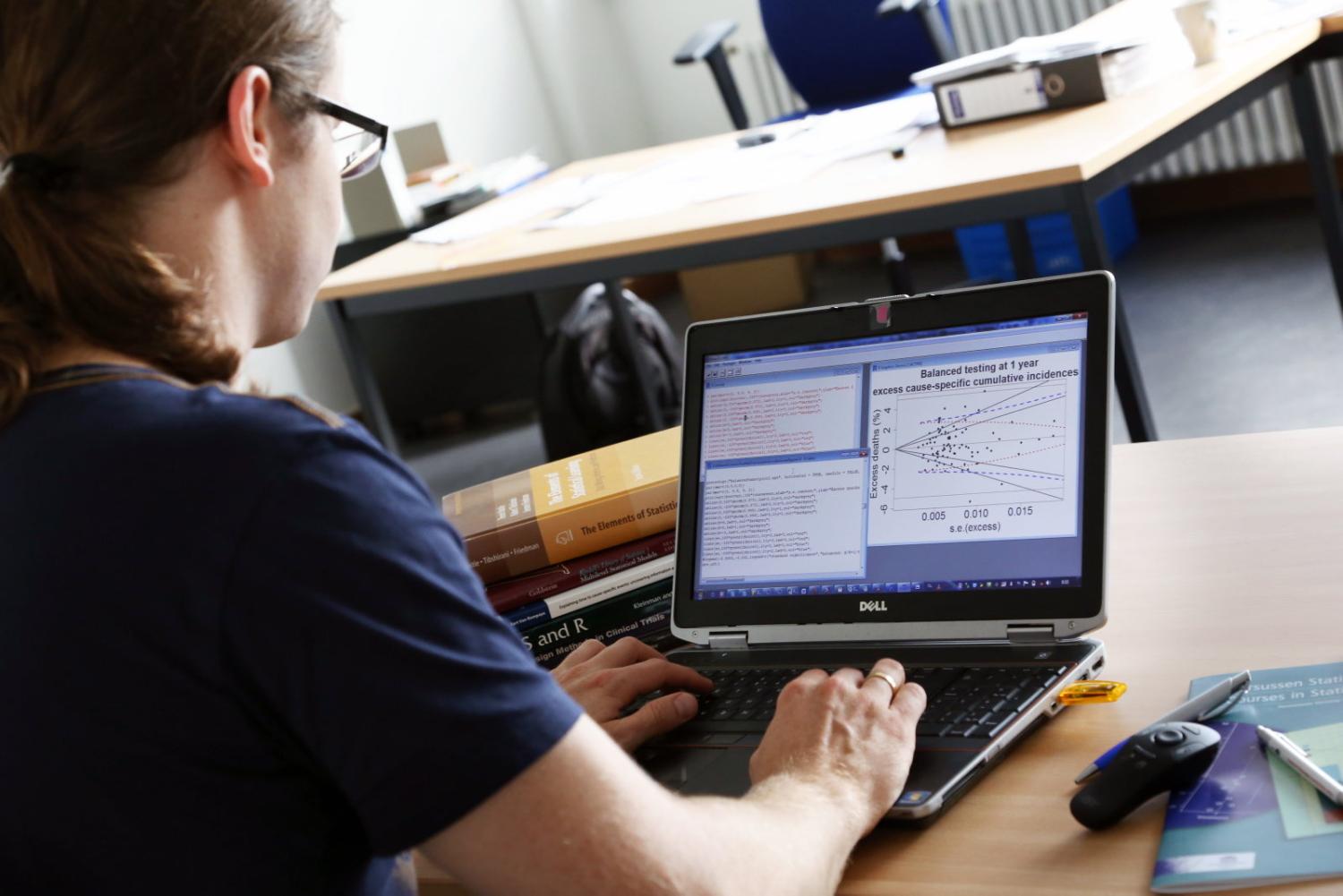Module 2 - Getting Started with R Software for Data Analysis
Description
R is a flexible environment for statistical computing and graphics, which is becoming increasingly popular as a tool to get insight in often complex data. While in some ways similar to other programming languages (such as C, Java and Perl), R is particularly suited for data analysis because ready-made functions are available for a wide variety of statistical (classical statistical tests, linear and nonlinear modeling, timeseries analysis, classification, clustering, ...) and graphical techniques.
The base R program can be extended with user-submitted packages, which means new techniques are often implemented in R before being available in other software. This is one of the reasons why R is becoming the de facto standard in certain fields such as bioinformatics (Bioconductor) and financial services.
This course introduces the use of the R environment for the implementation of data management, data exploration, basic statistical analysis and automation of procedures.
It starts with a description of the R GUI, the use of the command line and an overview of basic data structures. The application of standard procedures to import data or to export results to external files will be illustrated.
Creation of new variables, subsetting, merging and stacking of data sets will be covered in the data management section. Exploration of the data by histograms, box plots, scatter plots, summary numbers, correlation coefficients and cross-tabulations will be performed.
Simple statistical procedures that will be covered are:
- comparisons of observed group means (t-test, ANOVA and their non-parametric versions) and proportions
- test for independence in 2-way cross tables and linear regression (focusing on the R-implementation of the statistical methods that are the subject of other modules of the statistics series)
Finally, installing new packages and automation of analysis procedures will also be discussed.
Practical sessions and specific exercises will be provided to allow participants to practice their R skills in interaction with the teacher.
Target audience
This course targets professionals and investigators from diverse areas with little to no R-programming experience who wish to start using R for their data manipulation, data exploration or statistical analysis.
Course prerequisites
The course is open to all interested persons.
Knowledge of basic statistical concepts and experience with other programming languages are considered advantages, but not required for learning the R language.
Exam / Certificate
There is no exam connected to this module. If you attend all four classes you will receive a certificate of attendance via e-mail at the end of the course.
Microcredential
This module is part of the microcredential 'Data Analysis in R: Basics and Beyond' that consists of three modules:
- Module 2 - Getting Started with R Software for Data Analysis
- Module 6 - Leverage your R Skills: Data Wrangling & Plotting with Tidyverse
- Module 7 - Dynamic Report Generation with R Markdown and Quarto
If you are planning on registering for all three modules, consider enrolling for the microcredential instead. Read more...
Type of course
This is an on campus course. We offer blended learning options if, exceptionally, you can't attend a session on campus.
Schedule
October 23, 26 & 30, November 6, 2023, from 5.30 pm to 9 pm.
Venue
Faculty of Science, Campus Sterre, Krijgslaan 281, 9000 Ghent, Building S9, 3th floor, Auditorium 3.
Course material
Access to slides and data files.
Fees
The participation fee is 620 EUR for participants from the private sector. Reduced prices apply to students and staff from non-profit, social profit, and government organizations.
- Industry, private sector, profession*: € 620
- Non profit, government, higher education staff: € 465
- (Doctoral) students, unemployed: € 280
*If two or more employees from the same company enrol simultaneously for this course a reduction of 20% on the course fee is taken into account starting from the second enrolment.
Registration
To register, add the course below to your shopping cart and proceed to checkout.
Is this your first registration for a Beta Academy course? In that case, you will need to create an account first. Afterward, you will receive a confirmation email to activate your account on the academy platform. Once activated, you can return to your shopping cart to complete your course registration. If you do not receive a confirmation email for your order, please contact our Academy for Lifelong Learning at ipvw.ices@ugent.be.
Are you currently on the Nova-academy website? To proceed with the registration, simply click on the "More information" box located on the left side.
UGent PhD students
As UGent PhD student you can incorporate this 'transferable skills seminar: research & valorization' in your Doctoral Training Program (DTP). To get a refund of the registration fee from your Doctoral School (DS) please follow these strict rules and take the necessary action in time. Open a dossier on the DS website (Application for Registration) for this course as fast as possible.
Opening a dossier with your DS does not mean that you are enrolled for the course with our academy. You still need to register on this site.
It is you or your department that pays the fee first to our academy. The Doctoral School refunds that fee to you or your department once the course has ended.
KMO-portefeuille
Information on "KMO-portefeuille": https://www.ugent.be/nl/opleidingen/levenslang-leren/kmo
Organisation
Academy for Lifelong Learning (IPVW)
Faculty of Sciences
